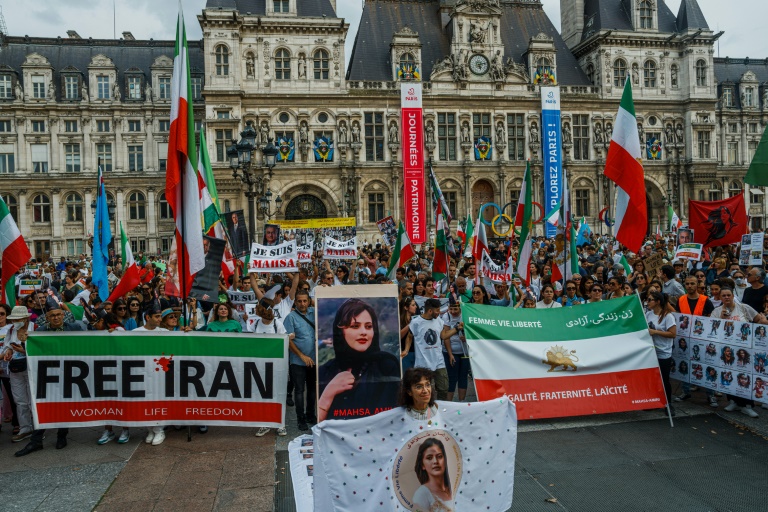EU awards rights prize to Mahsa Amini, Iranian who died in custody

Mahsa Amini’s death in custody triggered mass protests in Iran
Strasbourg – The European Union on Thursday awarded its top rights honour, the Sakharov Prize, to Mahsa Amini, the Iranian Kurdish woman who died in Iranian custody a year ago, and the “Woman, Life, Freedom” movement her death triggered.
“The brutal murder of 22-year-old Jina Mahsa Amini marked a turning point. It has triggered a women-led movement that is making history,” European Parliament speaker Roberta Metsola said, using Amini’s Kurdish first name as she announced the award.
Metsola said the movement’s three-word slogan was “a rallying cry for all those standing up for equality, for dignity, and for freedom in Iran”.
The EU prize announcement comes two weeks after the Nobel Peace Prize was awarded to an imprisoned Iranian rights campaigner, Narges Mohammadi.
Amini died age 22 on September 16, 2022, while being held by Iran’s religious police for allegedly breaching the Islamic republic’s strict dress code for women.
Her family and supporters say she was killed. Iranian authorities claim she died in custody from a previously undisclosed medical condition.
Her death triggered mass protests in Iran.
It also generated a global movement known as “Woman, Life, Freedom”, calling for the end of Iran’s imposition of a headscarf on all women and an end to the Muslim cleric-led government in Tehran.
Iranian security forces have cracked down on the protests domestically, killing hundreds, and have executed dozens for allegedly participating in what officials have called “riots”.
This week, they jailed Amini’s lawyer, Saleh Nikbakht, for one year for “propaganda” after he spoke to media about her case.
Many Iranian women continue to defy the government’s clothing edict by taking off their headscarves in public.
– Defying Iran’s clerics –
The “Woman, Life, Freedom” campaign continues in cities around the world, with frequent demonstrations in which Amini’s photo is held aloft.
Mohammadi’s Nobel Peace Prize was in recognition of her fight against the mandatory headscarf in Iran and against the oppression of women in the country.
Together, the two prizes focus attention on Iranian authorities’ punishment of women who defy the headscarf order, seen by both sides as defiance of the Islamic republic’s system of governance itself.
Amini and the “Woman, Freedom, Life” movement were backed by the European Parliament’s three main political groups, making them the frontrunner well before the Sakharov Prize winner was announced.
The two other nominations on the shortlist, backed by smaller groups, were Nicaraguan rights defenders, Vilma Nunez de Escorcia and Bishop Rolando Jose Alvarez Lagos; and three women campaigning for abortion rights, Justyna Wydrzynska from Poland, Morena Herrera from Salvador and Colleen McNicholas from the United States.
Billionaire Elon Musk had been put forward in an initial round by a far-right grouping in the parliament but failed to make the cut for the shortlist.
The Sakharov Prize, which comes with a 50,000-euro ($53,000) endowment, will be handed over in a European Parliament ceremony on December 13.
